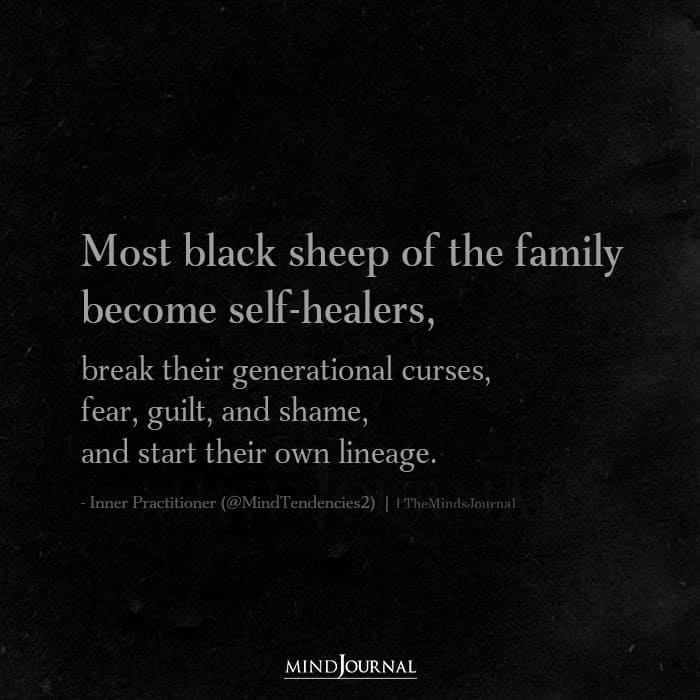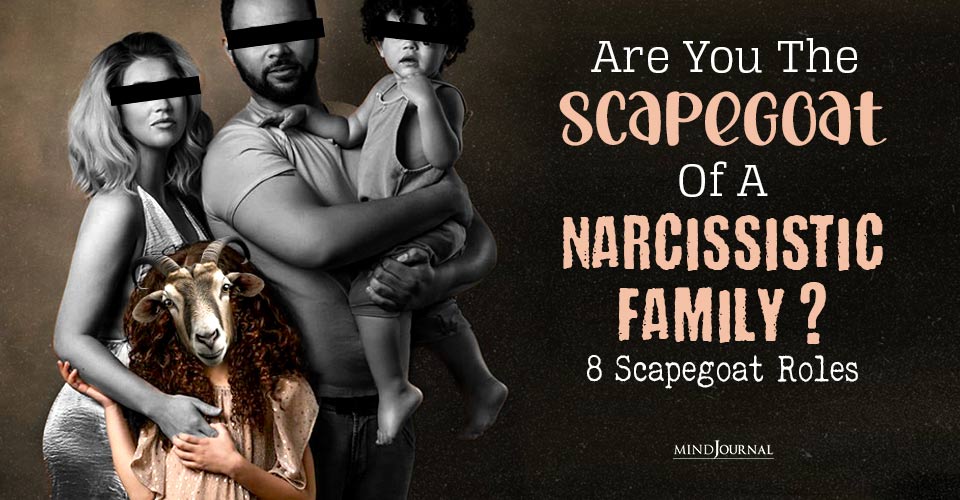Being the scapegoat of a narcissistic family is tough and confusing. You might feel like you are always the problem, no matter what you do. But did you know there are actually different types of family scapegoats? Yup, there are 8 distinct kinds, each with it’s own unique challenges.
But, who is a scapegoat really? When it comes a narcissistic family, there’s always that one person who is unfairly blamed and criticized for everything that goes wrong, even when it’s not their fault. They often bear the brunt of family abuse, feeling like they just can’t catch a break. That is who a scapegoat is.
Understanding the different types of narcissistic family scapegoats can help you make sense of your experiences and see that you are not alone. Whether you are the “truth-teller” who always speaks up or the “rebel” who refuses to conform, knowing your role and where you stand can be eye-opening.
So, let’s dive in and try to understand the different types of family scapegoats!
Related: Why Family Scapegoats Become Lifelong Victims?
Are You The Scapegoat Of A Narcissistic Family? 8 Types of Narcissistic Family Scapegoats
1. The Truth-Teller
The Truth-Teller is the one who calls out the family’s toxic behavior. They see through the narcissist’s facade and aren’t afraid to speak up, even if it means facing backlash and really offensive insults. This honesty often gets them labeled as problematic and the troublemaker of the family.
But truth-tellers can’t help but point out the obvious issues everyone else is ignoring. They’re the ones who refuse to play along with the lies, fakeness, and manipulation.
While this role can be emotionally exhausting and can cause you to feel very alone at times, it’s also incredibly brave. Truth-tellers are the ones who push for change, even when it’s not easy.

2. The Rebel
This type of scapegoat of a narcissistic family is also very brave, just like the above-mentioned truth-teller.
The Rebel refuses to conform to the family’s expectations and rules. They often go against the grain, doing things their own way, which can infuriate the narcissist who always to have the control.
Rebels might dress differently, have unconventional hobbies, or challenge the family’s long-standing beliefs and traditions. Their independence, inner strength, and refusal to follow the script make them a target for blame and criticism, sometimes really vicious even.
Despite the negativity they face, rebels are extremely strong and resilient, showing that there’s more to life than pleasing others and living by someone else’s standards.
3. The Lost Child
The Lost Child is probably one of the saddest types of narcissistic family scapegoats to exist.
They try to stay invisible to avoid conflict and any sort of attention. They might withdraw into their own world, spending a lot of time alone. This sort of avoidance is a coping mechanism to escape the family’s chaos and dysfunction.
Lost children often feel forgotten and overlooked, as the narcissist focuses more on other family members, whether positively or negatively.
While this role helps them avoid immediate harm and abuse even in some cases, it can also lead to feelings of isolation and loneliness, making it hard for them to form close relationships later in life, and well into adulthood.
4. The Caretaker
When it comes to family scapegoats, the Caretaker probably has the hardest job. The Caretaker steps up to take care of everyone’s emotional and sometimes even physical needs. They tend to put others first, and always try their best to maintain peace and harmony in the family.
This role is especially draining because caretakers often neglect their own needs and feelings in the process. They might be the ones who soothe the narcissist’s ego, comfort hurt siblings, and try to keep the family functioning.
Although they’re incredibly compassionate and empathetic, they often end up feeling used and unappreciated, as their efforts are rarely acknowledged or reciprocated.
Related: The Family Scapegoat’s Guide To Narcissistic Abuse Recovery
5. The Black Sheep
The Black Sheep is that family member who is openly different and often criticized and humiliated for it. They might have different values, lifestyles, or beliefs that set them apart.
This uniqueness makes them an easy target for the narcissist’s blame and scapegoating. If you are considered to be the Black Sheep of the family, you would how it feels to be misunderstood and unsupported, but remember, your individuality is your biggest strength.
Just like the Rebel, they remind us that it’s okay to be different and that we don’t have to fit into someone else’s mold. Embracing your uniqueness can be a powerful act of self-acceptance and mental fortitude.

6. The Overachiever
The Overachiever is that scapegoat of a narcissistic family who tries to gain the narcissist’s approval through success and accomplishments.
They might excel in school, sports, or their career, hoping that their achievements will earn them that love and respect hey have craved for since they were a child.
Unfortunately, the narcissist often dismisses their successes or takes credit for them, leaving the overachiever feeling unfulfilled and unappreciated. Despite their hard work, they rarely receive the validation they seek. Overachievers need to learn to find worth in themselves and their efforts, rather than seeking it from those who are incapable of giving it, AKA, narcissists.
7. The Comedian
When it comes to the different types of narcissistic family scapegoats, it might seem like the Comedian has a easier time handling narcissists, but that’s really not the case.
The Comedian uses humor to deflect attention and avoid conflict. They often try to lighten the mood and make everyone laugh, hoping to ease the tension in the family.
While this can be a valuable coping mechanism, it also means that the comedian’s own feelings and needs are often overlooked.
They might hide their pain and isolation behind jokes and banter, making it hard for others to see that they are struggling too, and struggling a lot. They might be the ones to bring joy and laughter, but they also need to be taken seriously and emotionally supported in their own right.
8. The Golden Child Turned Scapegoat
The Golden Child Turned Scapegoat was once the favorite, basking in the narcissist’s praise and attention. However, a shift occurs. Maybe they failed to meet expectations? Or they started to speak up for themselves and assert their own opinions and independence?
Suddenly, they find themselves on the receiving end of criticism, insults and blame. This transition can be especially jarring and emotionally painful, as they go from being adored to being condemned and cast aside.
When they become the scapegoat of a narcissistic family, it is at that moment they realize that a narcissist’s love is unpredictable and conditional, and that trying to win their approval every step of the way is fickle and unreliable.
Related: 12 Steps For Family Scapegoat Healing
Being the scapegoat of a narcissistic family means being in a lose-lose situation. This might sound harsh but it is what it is. Trying to win the narcissist’s love and approval will get you nowhere, and if you don’t try to win them over, you will still be ostracised from the family.
Narcissists are not good people, it is as simple as that. Being the scapegoat might be tough and emotionally challenging. but breaking free can be empowering. You deserve to be happy and valued. Focus on self-love, surround yourself with positive people and remember you are awesome just the way you are.
Life is too short let toxic people bring you down!










Leave a Reply